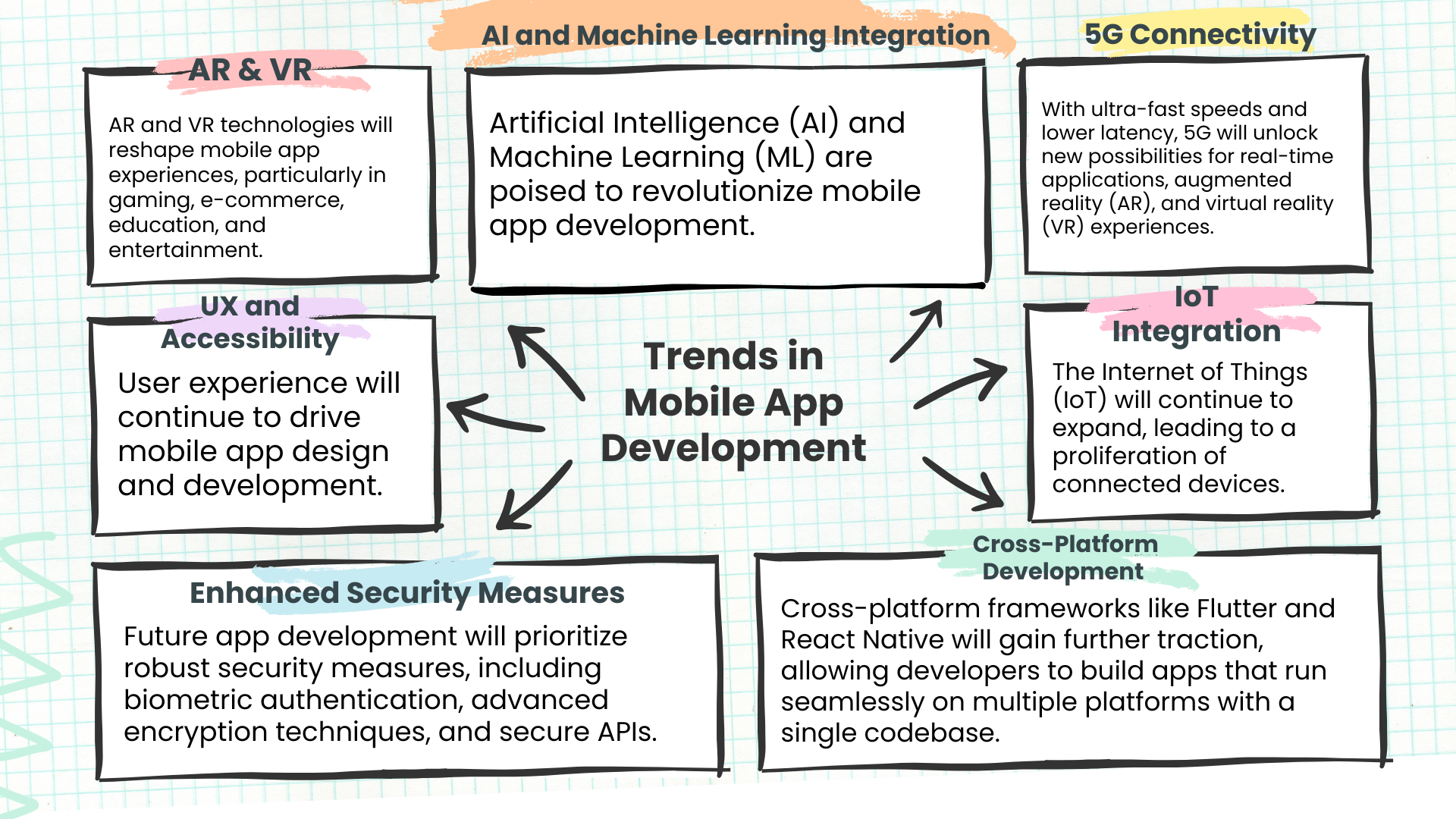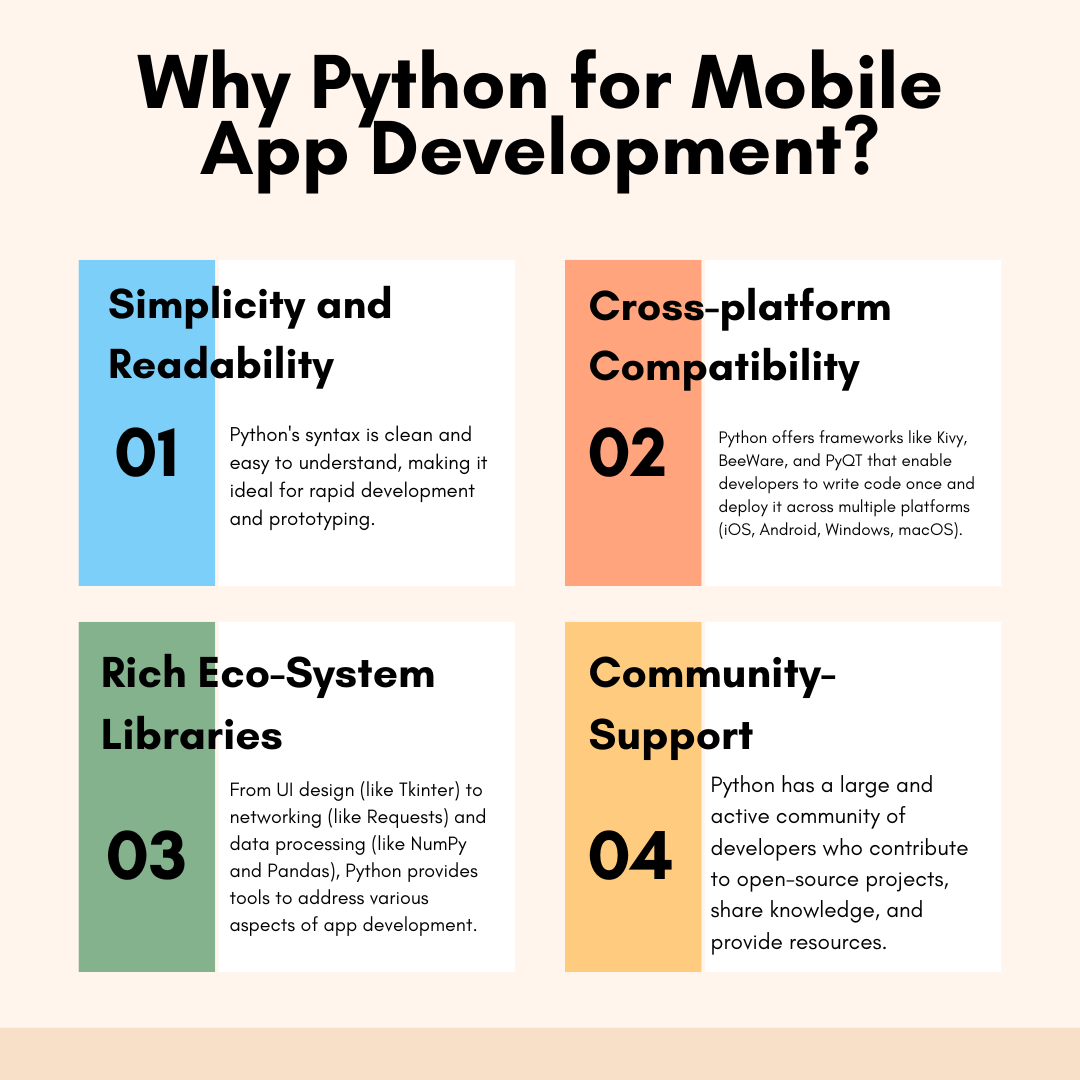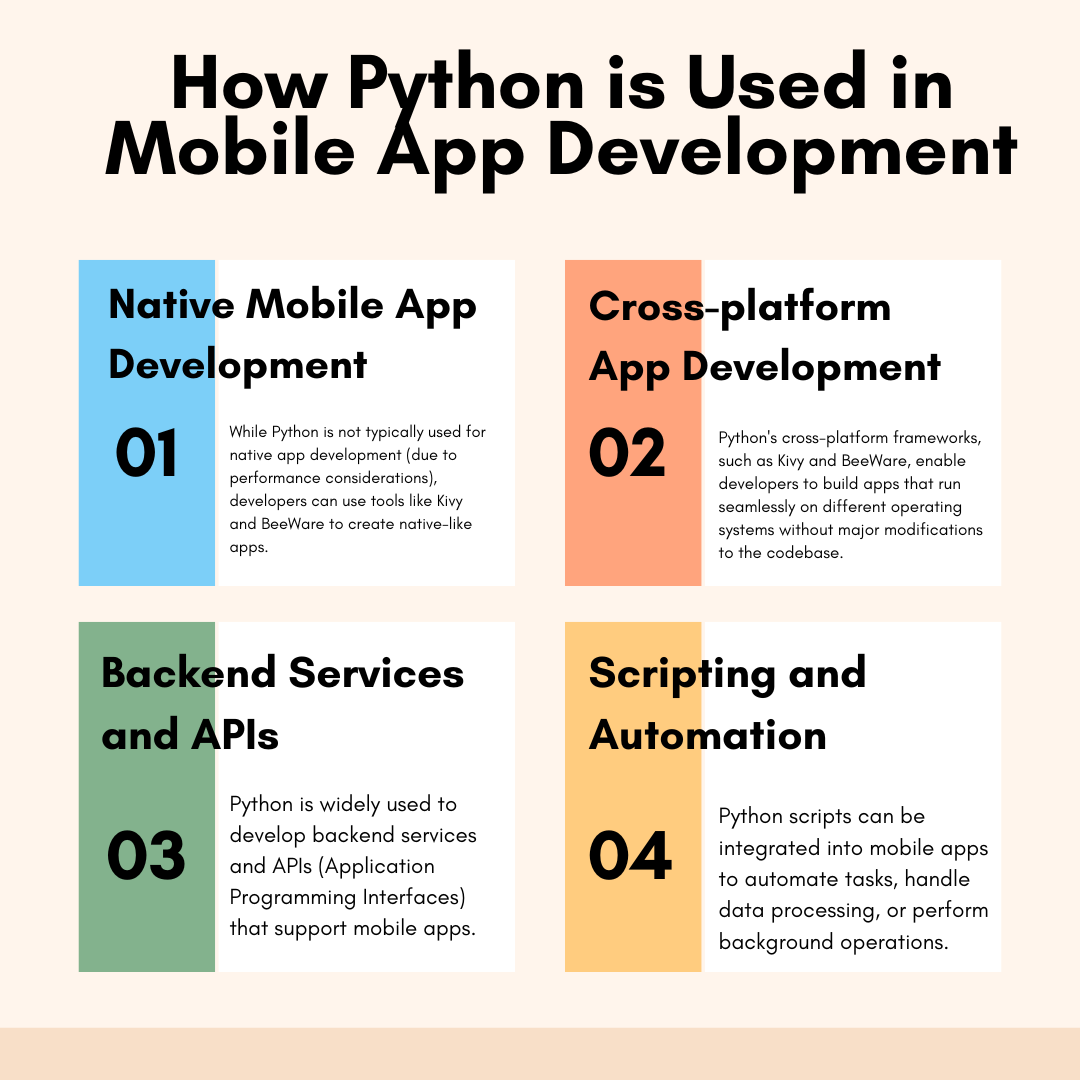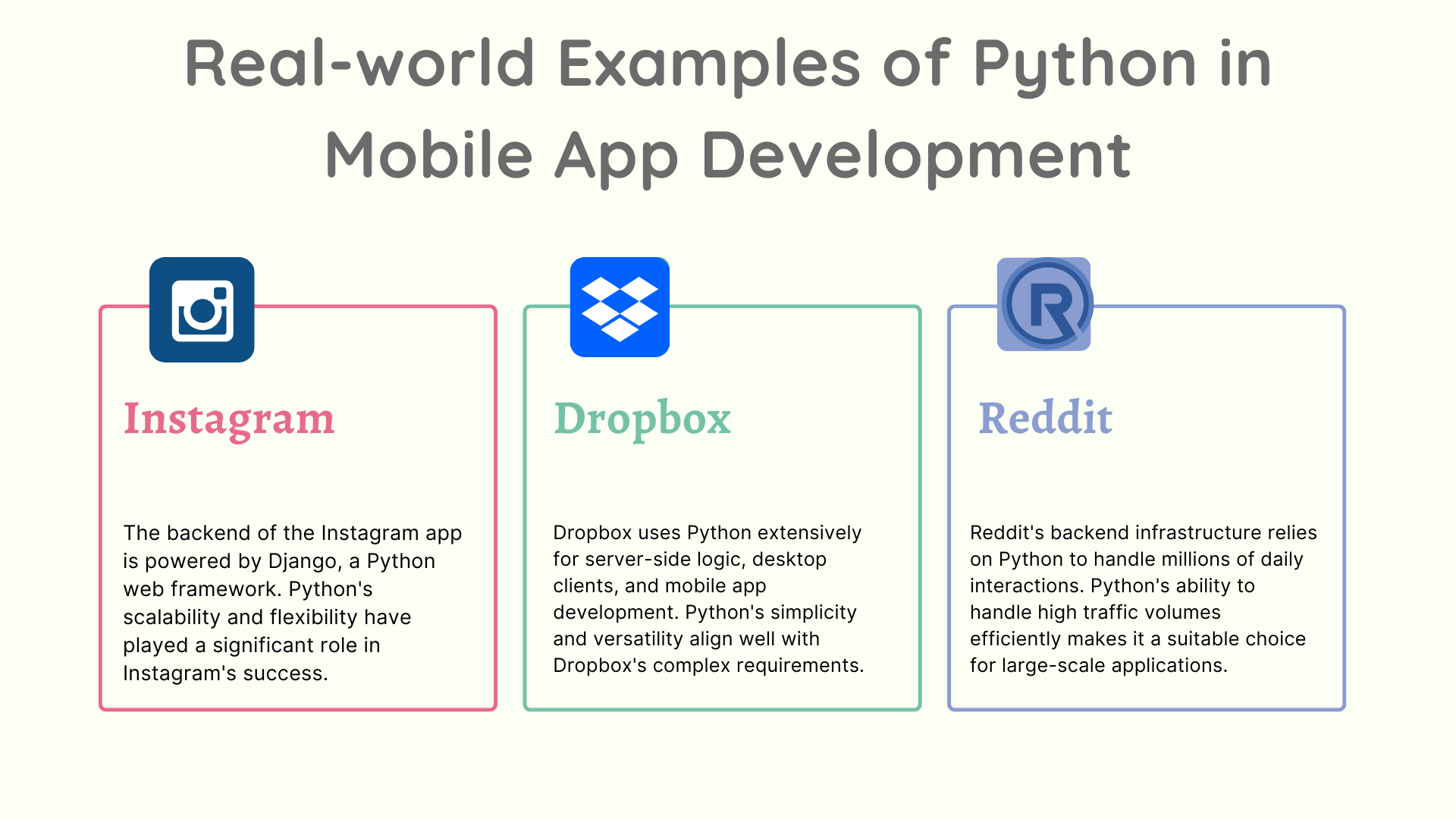In our rapidly evolving digital landscape, the future of mobile app development promises to be both exciting and transformative.
Mobile apps have become integral to our daily lives, reshaping how we communicate, work, shop, and entertain ourselves.
As we look ahead, emerging technologies like artificial intelligence, augmented reality, and 5G connectivity are revolutionizing the way we design, build, and interact with mobile applications.
Exploring this dynamic future offers insights into the trends and innovations that will shape the next generation of mobile experiences.
1. AI and Machine Learning Integration
Artificial Intelligence (AI) and Machine Learning (ML) are poised to revolutionize mobile app development.
In the future, apps will become smarter and more intuitive, capable of understanding user preferences, predicting behavior, and offering personalized experiences.
AI-powered chatbots will enhance customer support, while ML algorithms will optimize app performance and content delivery based on user interactions.
2. 5G Connectivity
The rollout of 5G networks will significantly impact app development.
With ultra-fast speeds and lower latency, 5G will unlock new possibilities for real-time applications, augmented reality (AR), and virtual reality (VR) experiences.
Developers will leverage 5G to create richer, more immersive apps that harness the full potential of high-speed connectivity.
3. Internet of Things (IoT) Integration
The Internet of Things (IoT) will continue to expand, leading to a proliferation of connected devices.
These apps will act as central hubs for controlling and monitoring IoT devices, ranging from smart home gadgets to wearable technology.
Developers will focus on creating seamless integrations between apps and IoT ecosystems, enabling users to interact with their devices effortlessly.
4. Cross-Platform Development
Cross-platform frameworks like Flutter and React Native will gain further traction, allowing developers to build apps that run seamlessly on multiple platforms with a single codebase.
This approach streamlines development processes, reduces costs, and accelerates time-to-market.
As the demand for consistent user experiences across devices grows, cross-platform development will become the norm.
5. Enhanced Security Measures
As the apps handle increasingly sensitive data, security will remain a top priority.
Future app development will prioritize robust security measures, including biometric authentication, advanced encryption techniques, and secure APIs.
Compliance with stringent data protection regulations will be essential to earning user trust and safeguarding privacy.
6. Focus on User Experience (UX) and Accessibility
User experience will continue to drive mobile app design and development. Apps will prioritize intuitive interfaces, fluid navigation, and personalized content to enhance engagement and retention.
Furthermore, accessibility features will become more prevalent, ensuring that apps are inclusive and accessible to users of all abilities.
7. Integration of Augmented Reality (AR) and Virtual Reality (VR)
AR and VR technologies will reshape app experiences, particularly in gaming, e-commerce, education, and entertainment.
From immersive AR shopping experiences to VR-based training simulations, apps will leverage these technologies to create captivating and interactive environments.
Conclusion
In conclusion, the future of mobile app development holds immense potential for innovation and disruption. The integration of advanced technologies, coupled with evolving user expectations, will continue to drive this field forward.
To succeed in this dynamic landscape, developers and businesses must stay agile, continuously adapt to new technologies, and prioritize user-centric design.
By embracing these changes and harnessing the power of emerging technologies responsibly, we can create mobile applications that are not only functional but truly transformative, enriching the way we live, work, and connect in the years to come.
Exploring the future of mobile app development is not just about anticipating trends; it’s about shaping the digital experiences that will define our future interactions with technology. Hire Andolasoft to craft engaging mobile applications that are aligned with the latest trends and customized to your business needs.



